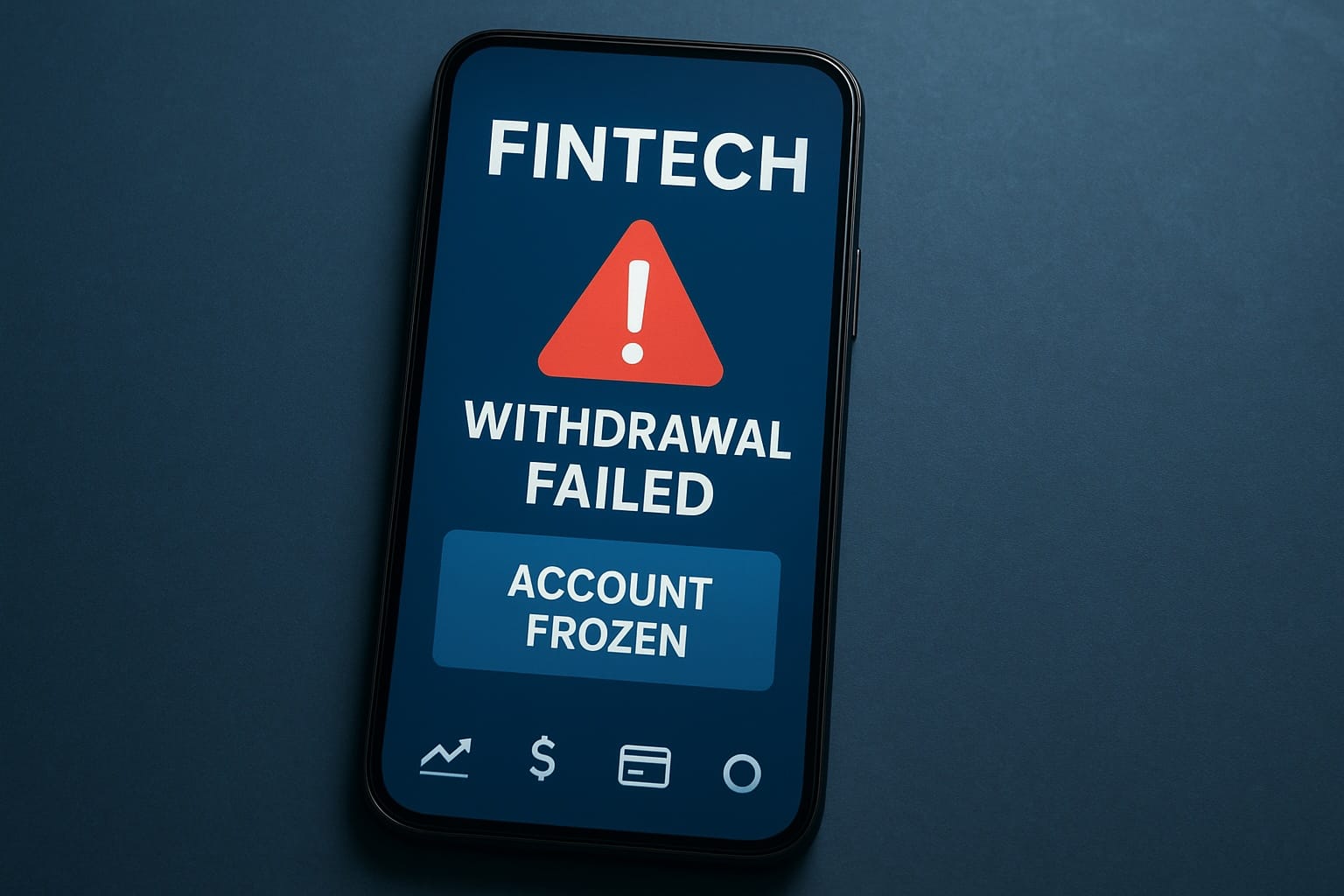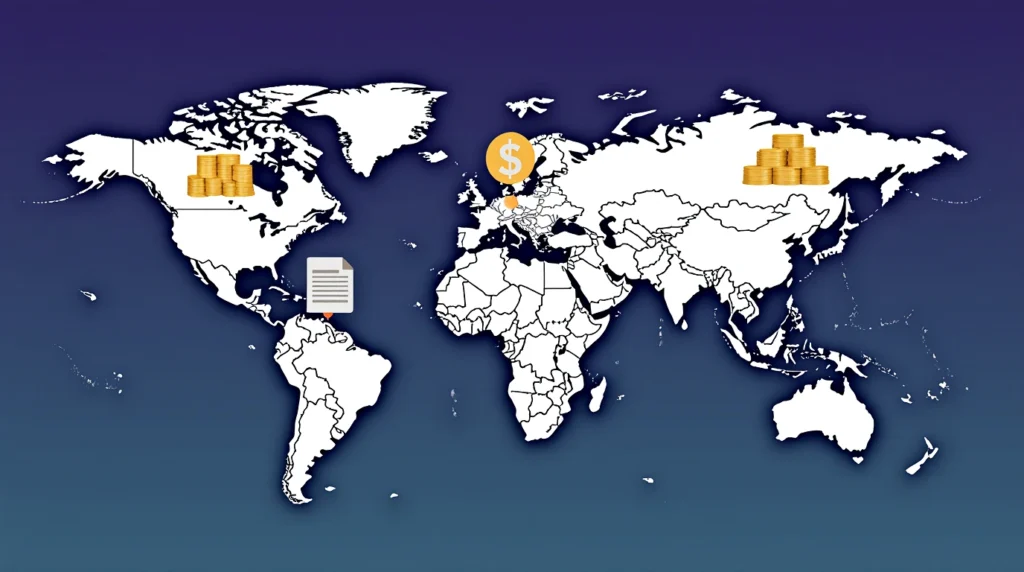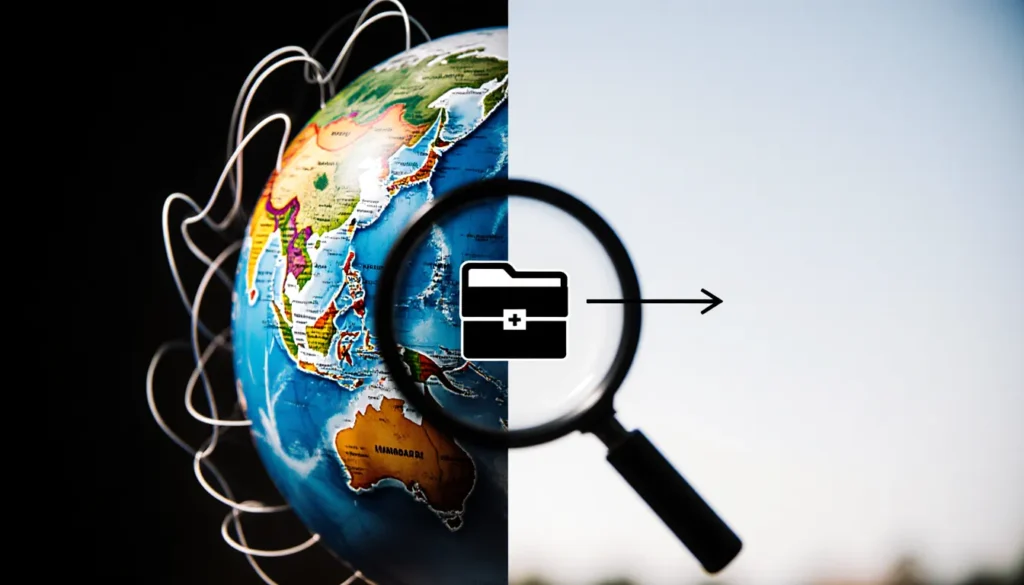Executive Summary
- The Risk: Holding >$10k in apps like Wise or Revolut exposes you to algorithmic account freezes (“de-banking”) and lack of direct deposit insurance.
- The Reality: Fintechs often hold EMI licenses, not banking licenses. You are an unsecured creditor, not a depositor.
- The Solution: The “Hub and Spoke” Model. Use Fintechs for spending, but store wealth in a Tier-1 Private Bank (Switzerland/Singapore).
- The Fix: How to open a private bank account remotely using AI compliance tools.
The Monday Morning Nightmare: When the “Send” Button Greys Out
It’s 9:00 AM in Bali. Alex, a software entrepreneur from the UK, sits down at his usual co-working space in Canggu. He pulls out his phone to wire $4,500 to a contractor in Ukraine and pay his Airbnb host for the next month.
He opens his banking app. The interface is sleek, neon-colored, and friendly. But today, the “Send” button is greyed out.
A notification pops up:
“Account Restricted. We are reviewing your recent activity. This process may take up to 60 days. Please do not contact support as they cannot accelerate this review.”
Alex’s stomach drops. His rent is due today. His developer is waiting to be paid. He has $32,000 sitting in that account—his entire business operating capital and personal savings. He tries to find a phone number. There isn’t one. He opens the chat support. It’s a bot.
Alex hasn’t committed a crime. He hasn’t laundered money. He simply received a payment from a client in Dubai and bought $500 worth of Bitcoin three weeks ago. But to the app’s algorithm, he is now a “High-Risk Entity.”
In 2025, Alex is effectively financially homeless.
This isn’t a horror story; it is a statistical reality. As we move deeper into 2025, thousands of digital nomads, expats, and international entrepreneurs are waking up to frozen accounts. Why? Because they made a fundamental mistake: They treated a Fintech App like a Bank.
And they are not the same thing.
Part 1: The Vital Difference Between Digital Wallets and Banks
If you use fintech apps like Wise, Revolut, or Payoneer, you likely appreciate their speed and convenience. We do too. They are brilliant tools for facilitating global business, buying coffee in Tokyo without FX fees, or splitting a dinner bill in Lisbon.
However, there is a common misunderstanding that all these apps are simply “Banks 2.0″—modern, direct replacements for traditional financial institutions.
It is crucial to understand the regulatory distinction. To know how your funds are protected, you must look beyond the app interface and at the specific license the provider holds in your jurisdiction.
The EMI Distinction Many of these companies operate primarily as Electronic Money Institutions (EMIs), not fully chartered banks.
- Banks typically lend out customer deposits but are required to participate in Deposit Guarantee Schemes (protecting your money up to a certain limit if the bank fails).
- EMIs generally do not lend money. Instead, they use a process called “Safeguarding,” where client funds are kept separate from the company’s own funds. While this offers protection, it is legally distinct from government-backed deposit insurance.
The “Best Case” Scenario It is worth noting that the landscape is shifting. Some major players (such as Revolut in the EEA) have successfully obtained full Banking Licenses in specific regions.
- In these specific scenarios, the provider effectively becomes a bank, offering the user experience of a fintech app with the regulatory security of a traditional bank (including deposit protection).
The Takeaway: Never assume an app is a bank just because it issues a debit card. Always check if you are contracting with an EMI or a licensed Bank entity. For significant capital storage, this distinction matters.
The Critical Distinction: EMI vs. Banking License
| Feature | Electronic Money Institution (EMI) | Full Banking License |
| Core Function | Payment Processor (Moving Money) | Deposit Taker & Lender (Holding Money) |
| Your Status | User (Unsecured Creditor) | Depositor (Protected Creditor) |
| Money Storage | “Safeguarded” in a pooled 3rd-party account | Held in the Bank’s own reserves |
| Insurance | None (Indirect coverage only) | Direct Guarantee (e.g., CHF 100k) |
| Freeze Risk | High (Algorithmic / AI-driven) | Low (Human Compliance Review) |
The “Safeguarding” Trap Explained
When you put money in a real bank, you are a depositor. If the bank fails, government schemes (like the Swiss Esisuisse or Singapore’s SDIC) step in to pay you back directly.
When you put money in an EMI, you are a user. The EMI uses a process called “Safeguarding.” They take your money and park it in a pooled account at a third-party bank (often Barclays, JP Morgan, or similar).
The Terrifying Reality: If the Fintech company goes bankrupt (recall the Wirecard collapse), you do not have a direct claim on that third-party bank. You are in line behind the investors, the tax man, and the lawyers. You might get your money back, but it could take years.
Tweet This: “If you keep your life savings in a Fintech app, you are taking Equity Risk on a tech startup without getting any equity.”
Part 2: The Algorithm vs. The Banker (Why You Get Frozen)
If the licensing issue is the long-term risk, the Compliance Freeze is the immediate danger.
In 2025, regulatory pressure on cross-border transactions has hit an all-time high. Governments are cracking down on crypto “off-ramping” and international money laundering (AML).
Traditional Private Banks (the kind we work with in Switzerland and Singapore) handle this pressure by hiring humans. When a Private Banker sees a transaction that looks unusual, they pick up the phone. They call you. They ask for an invoice. They verify the context.
Fintechs cannot afford humans. Their business model relies on razor-thin margins and millions of users. They cannot hire a compliance officer to check your $5,000 transfer.
The 3 Triggers That Freeze Nomad Accounts
Instead, Fintechs use AI Compliance Scripts. These scripts operate on a “Shoot First, Ask Questions Later” logic.
- The “Hopscotch” Log-in: Logging in from Thailand on Monday and Mexico on Wednesday.
- AI Interpretation: Account Takeover / Hack.
- Result: Immediate Freeze.
- The Crypto Touch: Any inflow or outflow to a crypto exchange (even a regulated one like Coinbase).
- AI Interpretation: Money Laundering Risk.
- Result: Account “Under Review” (indefinitely).
- The Inactivity Spike: Leaving an account dormant for 3 months and then receiving a large invoice payment ($10k+).
- AI Interpretation: Shell Company Activity.
- Result: Funds Locked.
When the AI flags you, it freezes the account instantly to protect the company’s license. You are then thrown into a queue with 10,000 other frozen users, waiting for an underpaid support agent to review your case.
Part 3: The Solution – The “Hub and Spoke” Strategy
So, does this mean you should delete your apps? Absolutely not. Fintechs are incredible tools for transactional finance. The mistake is in your Architecture of Wealth.
We recommend the Hub and Spoke Model:
1. The Hub (The Vault)
- Role: Wealth Preservation.
- Institution: A Tier-1 Private Bank Account in a neutral jurisdiction (Switzerland/Singapore).
- Balance: 90% of your Net Worth.
- Security: Full Banking License + Deposit Insurance.
2. The Spoke (The Wallet)
- Role: Daily Friction & Spending.
- Institution: A Fintech App (Wise/Revolut/Airwallex).
- Balance: 1-2 months of living expenses ($2k – $5k).
- Access: Apple Pay / Google Pay.
Why this works: If your “Spoke” triggers a compliance algorithm because you bought a coffee in Colombia, your account freezes. But you don’t care. Your wealth is safe in the “Hub.” You simply open a different “Spoke” app, wire funds from the Hub, and keep moving. You have built a Financial Firewall.
Part 4: The 2025 Banking Matrix (Switzerland vs. Singapore)
Not all “Real Banks” are created equal. Opening a bank account in your home country often subjects you to aggressive tax residency claims or local litigation risks. You need Neutrality.
Here is how the top jurisdictions compare for 2025:
| Feature | 🇨🇭 Switzerland (The Gold Standard) | 🇸🇬 Singapore (The Asian Fortress) |
| Political Stability | Extremely High. Neutral for 200+ years. | High. The financial capital of Asia. |
| Deposit Insurance | Yes. Up to CHF 100,000 (Esisuisse). | Yes. Up to SGD 100,000 (SDIC). |
| Crypto Friendly? | Yes. “Crypto Valley” (Zug) ecosystem. | Regulated. Strict but clear frameworks. |
| Privacy Level | High. Strict confidentiality laws. | High. Strong banking secrecy traditions. |
| Best For… | Wealth Preservation & Safety. | Active Trading & Asian Access. |
Note: As of April 1, 2024, Singapore increased its deposit insurance coverage to SGD 100k, matching global standards.
Part 5: How to Open a Private Bank Account (Without Flying)
You might be thinking: “I know Switzerland is better. But I can’t just walk into UBS Zurich in shorts and open an account.”
You are right. Traditional private banks have high walls.
- The “Show Up” Rule: Many require a face-to-face meeting in Switzerland.
- The “Paperwork” Wall: They require 50+ pages of wet-ink documentation.
- The “Crypto” Fear: Most bankers hang up the moment you say “Bitcoin.”
This is where the gap between wanting a safe account and getting one exists.
The Secret: AI-Powered Compliance Pre-Check
At Easy Global Banking, we realized that banks don’t hate nomads; they hate messy data. A compliance officer rejects an application because it’s easier than trying to understand a complex digital income.
We solved this with our AI-Powered Compliance Pre-Check.
Instead of sending raw documents to the bank, we process your profile first:
- Income Formatting: We translate your freelance/crypto income into a “Source of Wealth” narrative that bankers understand.
- Risk Scoring: We identify red flags (like transfers from high-risk countries) and explain them proactively.
- Digital Onboarding: We utilize our partnerships to waive the travel requirement. You open the account from your laptop.
The Roadmap to Safety
- Day 1: Strategy Call & Document Collection.
- Day 3: AI Compliance Review & Bank Selection.
- Day 14-21: Account Open. IBAN Issued.
Conclusion: Don’t Wait for the “Grey Button”
There are two types of digital nomads:
- Those who have been frozen.
- Those who will be frozen.
As we move through 2025, the algorithms are getting smarter, stricter, and more aggressive. Relying on a “start-up” to safeguard your life’s work is a gamble with terrible odds.
You have worked too hard for your freedom to lose it to a compliance bot.
Build your Vault. Create your Firewall. Own your money.
🚀 Ready to Build Your Financial Fortress?
Don’t let an algorithm decide your financial future.
At Easy Global Banking, we specialize in remote account opening for international entrepreneurs. We have a 100% Success or Money-Back Guarantee.
- Schedule Your Free Strategy Consultation with our Swiss-based team.
Stop banking like a tourist. Start banking like a sovereign individual.





